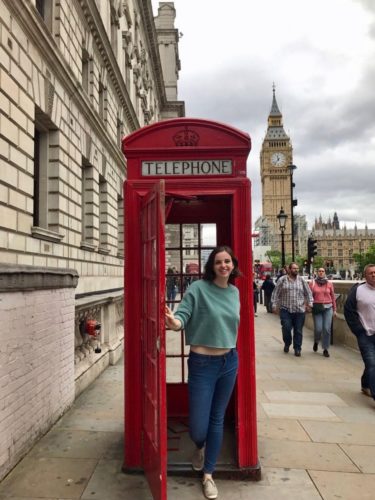When you were a child, what was your response to this question: “What do you want to be when you grow up?”
Describe your research in five words.
“Salty corn syrup acts strangely.”
My sister and I played school from the time I was able to sit up in a chair on my own, but she always made me be the student. I had dreams of being the teacher, but it’s hard to teach your 7-year-old sister much when you’re 4.
Share the pivotal moment in your life that helped you choose your field of study.
Freshman year, I took Calculus II with Linda Green — and I loved it! Apart from actually understanding what I was supposed to be learning for the first time since high school geometry, Professor Green really brought me back to the math lovers’ fold. If you’ve ever had her, you know that she is one of the most passionate professors in the math department. One day, she was so excited about e^i*pi +1 = 0 that her hand shook as she wrote. She then proceeded to show us her T-shirt, which had the same formula on it. Her dedication to her students and her passion for math really helped me love math again. She is the reason I changed my major to mathematics.
Tell us about a time you encountered a tricky problem. How did you handle it and what did you learn from it?
This past summer, I started on my first solo project for my lab. I spent the initial few months trying to do everything on my own — making no progress whatsoever. When I finally asked for help and contacted people who had experience in the area, I found that I could make great leaps in building my conductivity meter. Since then, all kinds of people — from high school students to post-graduates — have been crucial to helping me on my project. Collaboration has always been an important part of research, but I feel that many people don’t take advantage of the knowledge and resources that others can provide.
What are your passions outside of science?
Outside of science I am involved in Carolina Swing Dance and Women’s Glee Club. I love singing and dancing, and these communities allow me to do what I love with people from very different backgrounds and perspectives that I never would have known if I only did things related to STEM. It’s important to have passions outside of science because they create communities where you can meet people from diverse backgrounds and perspectives. Plus, when your research hits a roadblock, these passions can get your mind off things. The best solutions come to you when you aren’t even thinking about the problem!



